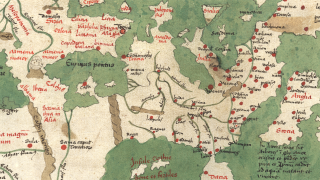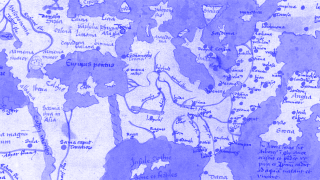
Subject area
Climate History and Landscape Archaeology
The subject area »Climate History and Landscape Archaeology« examines the relationships between humans and their environment through interdisciplinary cooperation between archaeology, history, geography and the natural sciences. These disciplines offer insights into the connections between climate change, changing landscapes and human influence on these processes.
In addition, this research project focuses on how historical societies adapted to changing environmental conditions and specific spheres of nature and settlement; on questions of vulnerability and resilience in the face of environmental changes and disasters; and on the perception of climate, weather and vegetation (and its change) in the pre-modern age.
With a geographical focus on East-Central Europe, this subject area adopts a comparative and transregional perspective, encompassing Europe at a minimum, and dedicates itself both to the traditional study of cultural landscapes and to the growing subject area »History of Climate and Society«.
Research topics
EpiMedDat database on medieval epidemics
The project aims to develop a collaborative scientific database, called EpiMedDat, for the joint collection and comparative analysis of historical data on epidemic diseases in the late Middle Ages.
Melting Mountains

The project focuses on the Greater Altai and aims to rethink the impact of climate change on populations living at the periphery through the concept of the »vertical climate frontier«. This term refers to the climate-induced advance of state power and colonial practices in highland regions.
Settlements and Landscapes
This research examines transformation processes of settlements and landscapes between the Danube, Adriatic and Black Sea during the long Late Antiquity (4th–9th c.) on a micro and macro level.
The Dantean Anomaly in Northern and Central Italy

The cities of Bologna and Siena possess rich archival material not just about their revenues and expenses, but also about decision-making in communal councils. This research examines in detail the interaction between extreme meteorological events and adaptation in reference to political processes, institutions and infrastructures in the years 1309 to 1321.
The Dantean Anomaly in the Middle East

This research examines the climate history of the Middle East in the 13th and the 14th centuries. The topic illuminates extraordinary weather events and their social, economic and political ramifications and analyses what strategies the affected and rulers adopted in the face of climate stress.


